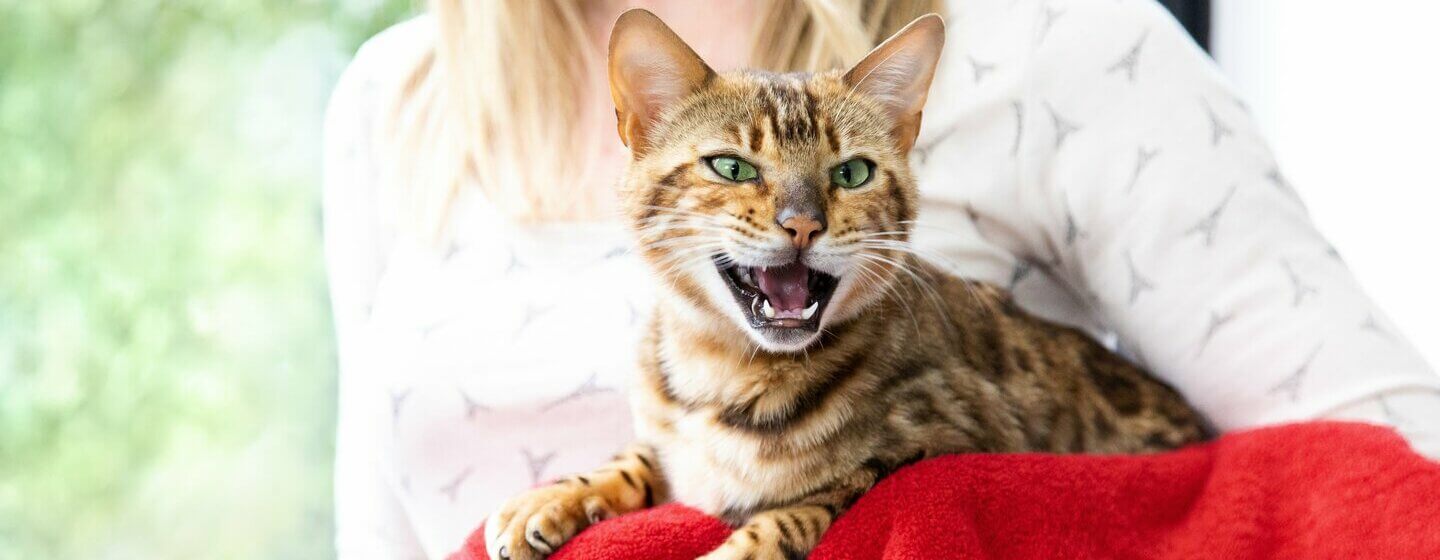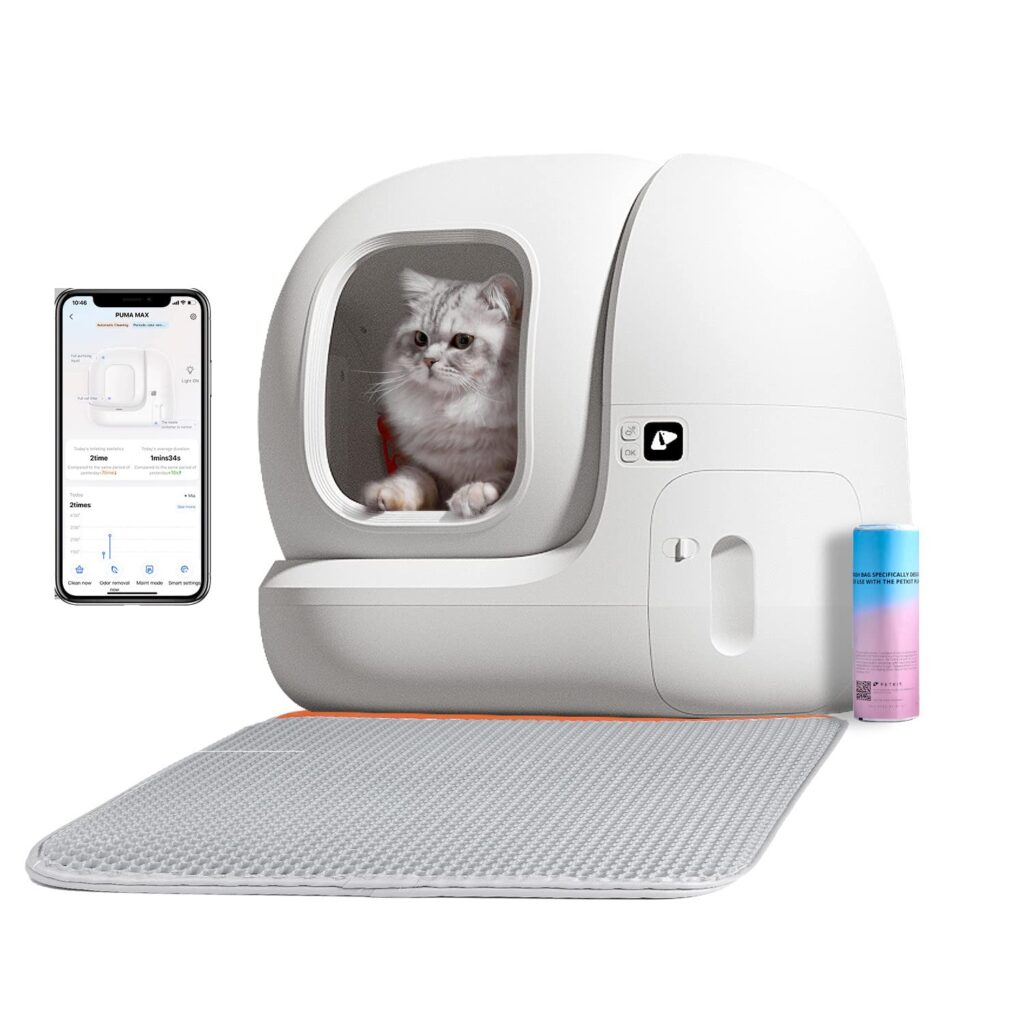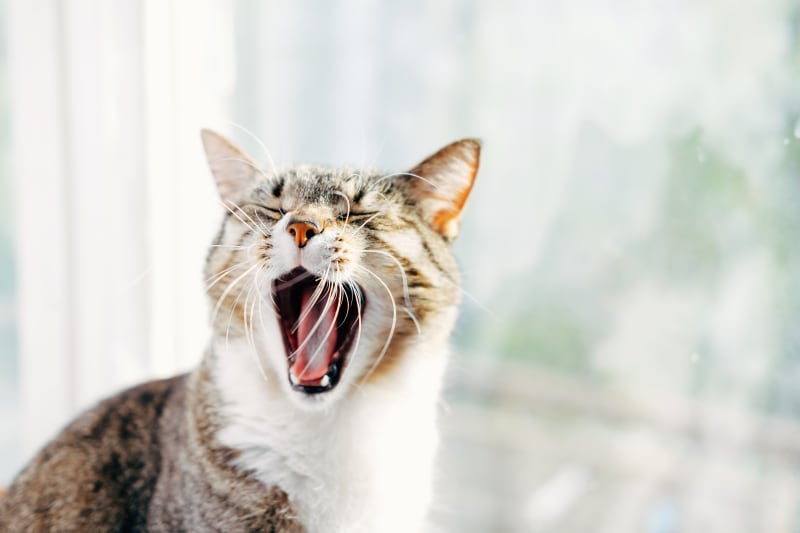If your cat is drinking a lot of water and meowing, it could be a sign of an underlying health issue. It’s important to monitor their water intake and behavior and consult a veterinarian for a proper diagnosis and treatment.
Excessive thirst in cats, known as polydipsia, can be caused by several factors such as diabetes, kidney disease, hyperthyroidism, or a urinary tract infection. Cats may meow to communicate their discomfort or express their need for attention. Being aware of these symptoms and seeking professional advice can help identify and address any potential health concerns your cat may be facing.
Prioritizing your cat’s health and well-being is the key to ensuring their overall happiness and quality of life.
Contents
- 1 Symptoms Of Increased Water Consumption
- 2 Potential Medical Conditions
- 3 Behavioral Factors To Consider
- 4 Routine Check-up With The Veterinarian
- 5 Diagnosing Medical Conditions
- 6 Behavioural Evaluations
- 7 Medical Treatment Options
- 8 Environmental Modifications
- 9 Providing Proper Hydration
- 10 Frequently Asked Questions For Why Is My Cat Drinking A Lot Of Water And Meowing?!
- 11 Conclusion
Symptoms Of Increased Water Consumption
Is your cat drinking a lot of water and meowing excessively? These symptoms can be a cause for concern and may indicate an underlying health issue. Increased water consumption, or polydipsia, can result from various factors, including:
- Dehydration: Hot weather or not having access to fresh water can lead to increased drinking.
- Diabetes: Cats with diabetes tend to drink more water as they try to compensate for excessive urination.
- Kidney disease: When the kidneys are not functioning properly, your cat may feel the need to drink more to flush out toxins.
- Hyperthyroidism: An overactive thyroid can increase thirst in cats.
- Urinary tract issues: Conditions like urinary tract infections or bladder stones can lead to increased water intake.
- Medication side effects: Certain medications can cause excessive thirst in cats.
Excessive meowing in cats can be a sign of various issues. While it’s normal for cats to meow occasionally, excessive meowing can indicate:
- Pain or discomfort: Cats may vocalize more when they are in pain or experiencing discomfort.
- Hunger or thirst: If your cat is meowing excessively, it might be trying to communicate that it’s hungry or thirsty.
- Stress or anxiety: Cats may meow excessively when they feel anxious or stressed.
- Attention-seeking behavior: Some cats meow to get their owner’s attention or to demand playtime.
- Medical issues: Certain medical conditions, such as hyperthyroidism or cognitive dysfunction, can cause cats to meow more than usual.
Potential Medical Conditions
Diabetes is one of the possible medical conditions that can cause increased thirst and meowing in cats. This is because high blood sugar levels lead to excessive fluid intake and urination. Kidney disease is another condition that can affect a cat’s hydration levels and vocalization. As the kidneys lose their ability to concentrate urine, the cat may drink more water and meow more frequently. Hyperthyroidism, a condition characterized by an overactive thyroid gland, can also influence a cat’s drinking and vocal habits. Cats with hyperthyroidism often have increased thirst and may exhibit excessive vocalization due to their hyperactive metabolism.
Diagnosis and treatment for these medical conditions should be sought from a veterinarian. It’s important to monitor the cat’s water intake, changes in behavior, and any other symptoms to provide accurate information to the vet. Early detection and proper management can help address these issues and improve the cat’s overall well-being.
Behavioral Factors To Consider
Stress and anxiety as causes for excessive water intake and meowing:
Cats can be sensitive creatures, and just like humans, they can experience stress and anxiety. These emotions can manifest themselves in various ways, such as excessive water intake and frequent meowing. When a cat is stressed or anxious, it may feel the need to drink more water to help soothe its nerves. Additionally, cats may use meowing as a way to communicate their distress. It’s important to identify and address the underlying cause of your cat’s stress or anxiety to help alleviate these behaviors.
As cats age, their bodies go through changes that can affect their hydration needs and meowing habits. Older cats may develop kidney problems or other medical conditions that can lead to increased water consumption. Similarly, these age-related changes can also result in changes in vocalization, with older cats meowing more frequently or in different ways. Regular veterinarian check-ups can help identify and manage age-related changes, ensuring your cat’s overall well-being.
Environmental factors affecting a cat’s need for hydration and vocalization:
The environment in which a cat lives can greatly influence its hydration needs and vocalization. Factors such as temperature, humidity, and access to water sources can all impact how much water a cat drinks. Similarly, the environmental stimulation or lack thereof can influence a cat’s need to vocalize. For instance, a cat in a stimulating environment with plenty of mental and physical enrichment may have reduced water intake and vocalization needs compared to a cat in a more sedentary environment. It’s important to create an environment that meets your cat’s specific needs to promote optimal health and well-being.
Routine Check-up With The Veterinarian
| Your cat’s regular water consumption and vocalization habits are important indicators of their well-being. Excessive drinking and excessive meowing can often be signs of an underlying health issue in cats. It is recommended to schedule routine check-ups with a veterinarian to monitor your cat’s overall health and address any concerns. Regular veterinary visits play a crucial role in early detection and prevention of potential problems. During these check-ups, your veterinarian will assess your cat’s water intake, urinary habits, and hydration levels. Increased water consumption can indicate various conditions such as diabetes, kidney disease, hyperthyroidism, or even stress. Meowing excessively can be a manifestation of anxiety, pain, or simply a way for your cat to communicate their needs. By establishing a consistent schedule of veterinary visits, you can ensure that any potential health issues are addressed promptly and your cat receives the proper care and treatment they need. |
Diagnosing Medical Conditions
Diagnosing medical conditions in cats may require various lab tests and analysis. One common issue that can cause excessive thirst and meowing is diabetes. Blood and urine tests can help evaluate kidney function, which is often compromised in diabetic cats. Thyroid function tests can also be conducted to detect hyperthyroidism, another condition that can cause increased drinking and vocalization in cats.
These lab tests are vital in identifying the underlying cause of your cat’s symptoms. Blood tests can provide valuable information about glucose levels, kidney function, and thyroid hormones. Urine tests can help identify glucose and protein levels in the urine, along with other potential abnormalities.
By conducting these tests, veterinarians can accurately diagnose and treat your cat’s medical condition. It is essential to consult with a professional veterinarian to determine the appropriate tests based on your cat’s specific symptoms and medical history.
Behavioural Evaluations
A sudden increase in your cat’s water intake and meowing could be indicative of behavioral changes that require careful assessment. Start by observing changes in the cat’s environment. Have there been any recent alterations to their living space, such as new furniture or an unfamiliar scent?
Next, identify potential stressors and anxiety triggers. Cats can become anxious due to changes in their routine, the presence of new pets or people, or even loud noises. Pay close attention to these factors and consider whether any of them align with your cat’s behavior.
If the issues persist, it might be beneficial to seek guidance from a feline behavior specialist. These experts can provide invaluable insight into your cat’s behavior and offer effective solutions tailored to their needs.
Medical Treatment Options
Medical treatment options for cats that are drinking a lot of water and meowing can vary depending on the underlying condition. For diabetic cats, insulin therapy is typically recommended to help regulate blood sugar levels. This involves administering insulin injections at home, following a prescribed schedule and dosage. Cats with kidney disease may require a combination of medication and dietary management, including a special renal diet that is low in protein and phosphorus. This can help to reduce the workload on the kidneys and slow down the progression of the disease. Hyperthyroidism, on the other hand, can be treated through medication or radioactive iodine therapy. Medication helps to control the production of thyroid hormones, while radioactive iodine destroys the abnormal thyroid cells. Ultimately, the appropriate medical treatment option will depend on the specific diagnosis made by a veterinarian.
Environmental Modifications
Environmental modifications play a crucial role in identifying and reducing stressors in a cat’s environment. To create a calm and stimulating living space for your cat, try to eliminate or minimize potential stressors such as loud noises, excessive heat or cold, and lack of hiding places. Consider providing a comfortable space where your cat can retreat to when feeling overwhelmed, such as a cozy bed or a designated hiding spot. Interactive toys and enrichment activities can help keep your cat engaged and mentally stimulated, reducing the likelihood of excessive meowing and drinking. Provide a variety of toys that encourage hunting instincts, such as puzzle toys or treat-dispensing toys. Additionally, schedule regular playtime sessions with your cat to provide physical exercise and bonding opportunities. By making these environmental modifications, you can help create a more harmonious and stress-free environment for your cat.
Providing Proper Hydration
Providing proper hydration is essential for your cat’s overall health and well-being. One possible reason your cat may be drinking a lot of water and meowing is that they are not getting enough water through their regular diet. Encouraging increased water intake can be achieved by incorporating wet food into their diet. Wet food has a higher water content than dry food, helping to keep your cat hydrated.
Another way to encourage water consumption is by using water fountains or providing fresh water sources throughout your home. Cats are attracted to moving water, and a fountain can stimulate their interest in drinking. Monitoring your cat’s water intake is crucial, ensuring that a fresh supply is always available. This can help in identifying any abnormal drinking patterns or excessive thirst that may require veterinary attention. Keeping your cat properly hydrated is essential for their overall health and can help prevent urinary tract issues and dehydration.

Credit: www.purina.co.uk
Frequently Asked Questions For Why Is My Cat Drinking A Lot Of Water And Meowing?!
Why Is My Cat Drinking So Much Water And Meowing?
Excessive thirst and constant meowing in cats may indicate underlying health issues. It could be a sign of diabetes, kidney problems, or hyperthyroidism. Consult a veterinarian to determine the cause and provide necessary treatment for your cat’s excessive drinking and meowing behavior.
Why Is My Cat Drinking So Much Water All Of A Sudden?
Your cat may be drinking more water suddenly due to reasons like dehydration, kidney problems, diabetes, hyperthyroidism, or certain medications. It’s important to consult a veterinarian to identify the underlying cause and provide appropriate treatment if necessary. Monitor your cat’s water intake and behavior closely.
Why Won’t My Cat Stop Meowing For Water?
Cats meow for water if they’re thirsty. Ensure their water bowl is clean, fresh, and easily accessible.
When Should I Be Concerned About My Cat Drinking A Lot Of Water?
If your cat is drinking a lot of water, it could be a sign of a health concern. It’s best to consult with a vet to determine the cause and ensure your cat’s well-being.
Conclusion
To sum up, if you’ve noticed your cat drinking excessive amounts of water and meowing frequently, it’s important to pay attention to these signs. It could be indicative of an underlying health issue such as diabetes, kidney disease, or hyperthyroidism.
Consulting with a veterinarian is crucial in determining the cause and providing appropriate treatment. Remember, proper hydration and addressing your cat’s needs promptly can help maintain their well-being and overall quality of life.

Katie Lindsey is a passionate cat lover and founder of Cats Solution, a comprehensive resource for all things feline. With a lifelong love for cats and extensive knowledge in their care and behavior, she provides expert advice and solutions to cat owners. Through her website, Katie fosters a supportive community where cat enthusiasts can find guidance and heartwarming stories. A dedicated advocate for animal welfare, Katie also promotes responsible pet ownership and adoption. Join her on this purr-fect journey celebrating the joy of feline companionship.



